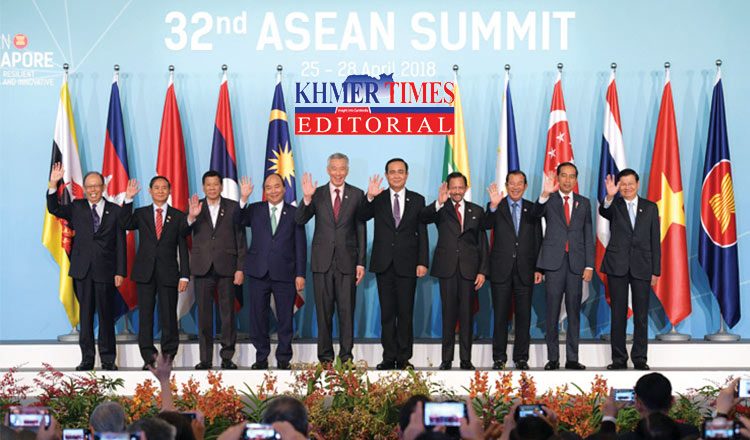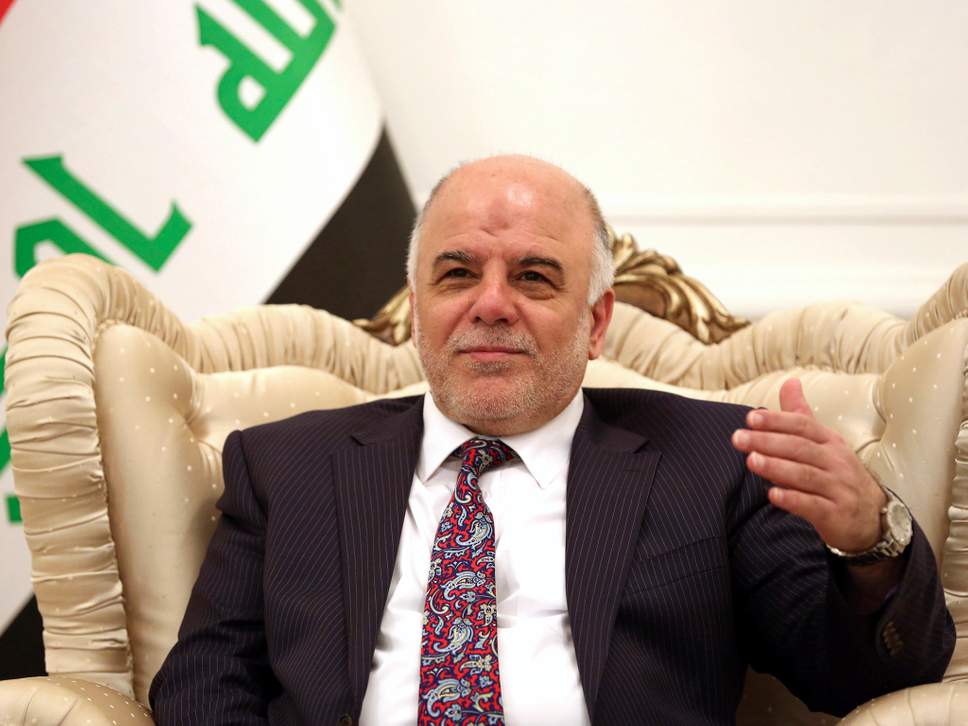Download PDF :


Khmer Times (20 September 2018)
Asean is at an “inflection point” where major changes and uncertainties are unfolding. Geopolitical risks are rising mainly due to geopolitical competition and trade friction between the US and China, maritime disputes in the South China Sea, and competition to get access to strategic resources such as water, food and energy.
Asean, an open regional block, is striving to navigate through uncertain times chiefly caused by economic protectionism and unilateralism. Promoting an open, and inclusive multilateral trading system, especially the conclusion of the Regional Comprehensive Economic Partnership (RCEP), is critical to maintaining the dynamics of regional economic integration.
On the geopolitical front, the power rivalry between the US and China is causing a security dilemma, with many Asean member states feeling anxious. Some Asean member countries have been forced to take sides, against their will and interests.
China’s Belt and Road Initiative (BRI) and Free and Open Indo-Pacific Strategy (FOIP) collectively developed by Australia, India, Japan and the US have become a new source of institutional competition. Regardless of the form and substance of the two initiatives, Asean member countries have sent a clear signal that they welcome all regional initiatives that are compatible with and complementary to Asean connectivity and strengthen its centrality role in shaping the evolving regional architecture.
The South China Sea has become the contesting ground between major powers. Although tensions have been receding, the underlying causes of regional conflicts remain unresolved. The Mekong region is going to be another strategic frontier to be shaped by great power politics if regional countries cannot resolve their outstanding differences, particularly sovereignty disputes, peacefully between themselves. These two regional security flashpoints have the potential to strategically divide Asean.
Water resource security in the Mekong region will become another regional security flashpoint if the existing regional mechanisms do not effectively prevent, manage and resolve water-related tensions and conflicts. The riparian countries need to further promote confidence building measures and preventive diplomacy to avert potential conflicts over the mismanagement or unfair use of the trans-boundary water resources.
How should Asean respond to these emerging geopolitical risks?
Firstly, Asean must strengthen its internal unity by deepening strategic trust and promoting substantial dialogues based on common vision and interests. The member states must craft and adjust their foreign policy to be in line with Asean’s vision and blueprints so that collective position and bargaining power on international issues can be further leveraged.
Secondly, Asean needs to promote a rules-based international order in order to increase predictability and shape stable patterns of inter-state relations in Southeast Asia and between Asean and other dialogue partners. International laws are the foundations of sustainable peace and development in the region as all countries are fairly treated and protected under the same international legal framework.
Thirdly, Asean should robustly implement a collective hedging strategy, at both the national and regional levels. Although most of Asean member countries have been implementing a hedging strategy at varying degrees, the dynamics of domestic politics in certain countries prevent them from effectively executing the strategy due to lack of national consensus and unity.
For instance, Cambodia’s hedging strategy is being structurally constrained by the ongoing domestic political evolution in the country. The political tensions between the two camps have led to social and political polarization, especially after the general election in 2013. Such domestic political environment is shaking Cambodia’s foreign policy orientation and limiting the effectiveness of the country’s hedging strategy.
Finally, the more developed Asean members should assist the less developed members to diversify their strategic and economic partners in terms of capacity building support such as in the fields of trade negotiation and comprehensive security cooperation. Preventive diplomacy, conflict management, and conflict resolution are some of the skills that need to be enhanced.
Asean and its member states must robustly reform and innovate to adapt to new challenges and realities. The power shifts are real and Asean needs to adjust to survive and stay relevant.
Cambodia, which always puts Asean as a cornerstone of its foreign policy, should further strengthen its national capacity to implement Asean’s blueprints and vision. As it is, Cambodia’s national interests are closely connected with the future of Asean.
https://www.khmertimeskh.com/50534129/how-asean-should-respond-to-geopolitical-risks/

 HAIDER AL-ABADI IS LOSING HIS GRIP ON POWER - BUT IT WILL LIKELY MEAN LITTLE CHANGE FOR IRAQ'S GOVERNMENT
Iraq
20.09.2018
HAIDER AL-ABADI IS LOSING HIS GRIP ON POWER - BUT IT WILL LIKELY MEAN LITTLE CHANGE FOR IRAQ'S GOVERNMENT
Iraq
20.09.2018
 HOW ASEAN SHOULD RESPOND TO GEOPOLITICAL RISKS
Asia - Pacific
20.09.2018
HOW ASEAN SHOULD RESPOND TO GEOPOLITICAL RISKS
Asia - Pacific
20.09.2018




























